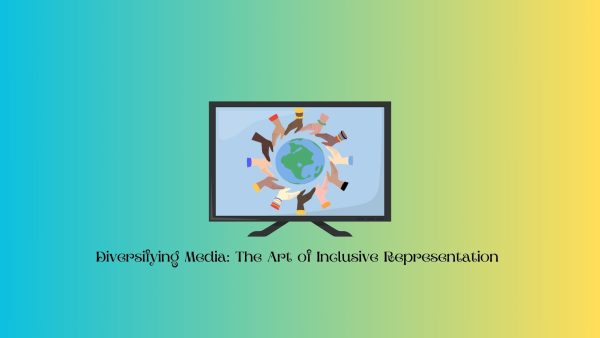Gen Z Begins to Redefine the Workplace
Photo Courtesy of Christina @ wocintechchat.com on Unsplash
Generation Z is changing the workplace, and will continue to do so dramatically.
April 3, 2020
Generation Z. The upcoming generation, officially defined by Pew Research Center as those born between 1997 and 2012. Many have recently joined the workforce, and plenty more will do so within the next few years. By doing so, this new generation of young adults and teenagers is causing some significant changes.
Gen Z is known to be “flexible, collaborative, diverse, socially conscious and technologically savvy,” according to the Lima News. Already, members of Gen Z are having significant positive and negative impacts on the workplace.
One of the negative aspects of the Gen Z generation is how they are causing a rising frequency of employees “ghosting” their employers. In fact, 50% of the Gen Z members and millennials said they ghosted an employer for a higher paying job, according to a report by Randstad US.
Ghosting an employer means that instead of officially resigning from a job, employees simply stop showing up to work. It can also be when a job candidate that has been selected for a job stops responding to the employer.
Part of the reason that younger employees are ghosting employers more frequently may be because of the similar lack of communication from employers during the hiring process. In fact, a survey from CareerBuilder discovered that “more than half of job candidates say they do not hear back from companies at all.” Some job seekers and employees may seem justified in beating employers at their own game.
Unfortunately, this new ghosting trend will ultimately do more harm than good. As more and more potential employees or employees ghost their employers, companies will be more defensive. For example, they may make the hiring process even more difficult, such as by adding interviews to weed out potential ghosters. Similarly, employers could avoid hiring members of Gen Z altogether. Overall, it will only cause more distrust between the two groups and make the process more difficult for everyone.
Meanwhile, the Randstad US report also found that 60% of Gen Z and millennials reported they have “leveraged a potential job offer as a negotiation tactic for a higher salary at their current companies.” In comparison, only 48% of Gen X members and 29% of baby boomers said they have done the same.
Jim Link, chief human resources officer of Randstad North America, said that the changes represent how “people are getting increasingly more strategic and assertive in their approach to climbing the pay scale.”
In other words, younger generations are switching between jobs or ghosting employers to ultimately work where they receive the highest salaries. While this may be beneficial for individual employees, it is causing quite a headache for employers.
Another notable aspect of both millennials and Gen Zs in the workplace is how they prioritize their ability to “support companies that align with their values,” according to The Deloitte Global Millennial Survey 2019. Many “will not hesitate to lessen or end a consumer relationship when they disagree with a company’s business practices values or political leanings.” Obviously, such a determination also translates to which companies they decide to work for.
Link also said that Gen Z is actually “the bravest generation,” since “they had the audacity to ask for all of those things from their employers, their communities and their societies that all the rest of us really wanted but were too afraid to ask for.”
In turn, companies must begin to adapt to these new potential employees. Many companies are making the shift to a more modern, flexible approach, especially by putting an emphasis on technology.
Alice Ding (12) approves of this new emphasis on technology, pointing out that members of Gen Z “know not only how to use technology, but how to utilize it to better the workplace.”
While Gen Z members might be willing to move for higher salaries, that isn’t their only concern. A report by Deloitte titled “Understanding Generation Z in the workplace” found that although “salary is the most important factor in deciding on a job, Generation Z values salary less than every other generation: If given the choice of accepting a better-paying but boring job versus work that was more interesting but didn’t pay as well, Gen Z was fairly evenly split over the choice.”
In order to “win the hearts of Generation Z, companies and employers will need to highlight their efforts to be good global citizens,” added the report. In order to hire these new employees, companies need to “demonstrate their commitment to a broader set of societal challenges such as sustainability, climate change, and hunger.”
All in all, the full potential of Gen Z in changing the workplace is still unknown, but the generation is already bringing significant new developments to companies and employers.






















